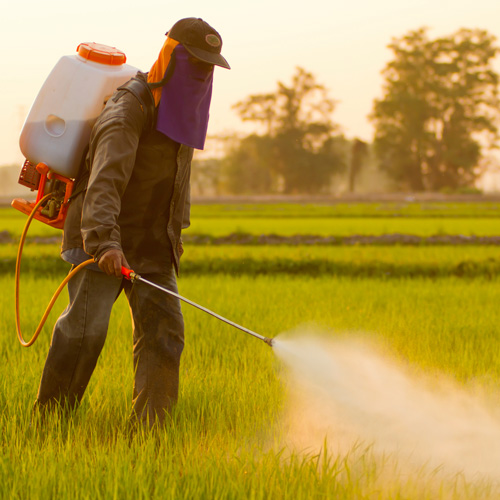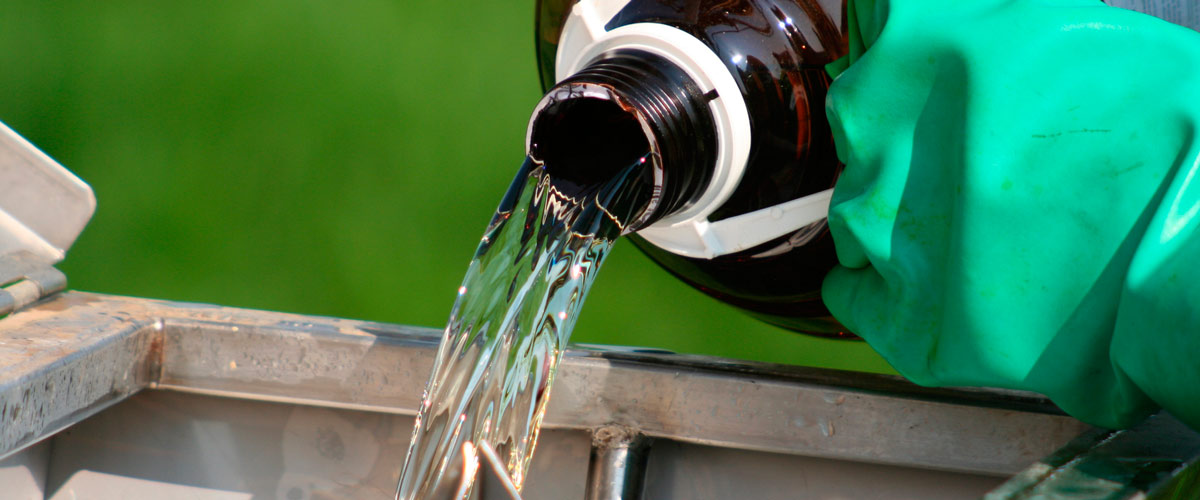You browse the fruits and vegetables aisles picking out your ingredients for tonight’s dinner. You’ve gathered your food this way your whole life, but have you ever stopped to consider how it got there? There are a slew of avenues to turn down when you investigate this question, but today let’s look at a small fraction of the process: systemic pesticides. They’re growing in use these days out in our fields, so it’s important for us as consumers to stay informed, create our own opinions and know where our meals are really coming from. So let’s get started:
1. How They Work
Systemic pesticides emerged in 1998 to stellar reviews from the agricultural industry. Unlike previous, conventional sprays, this new form of pesticide better targeted farmers’ harmful, invertebrate pests while also exhibiting longer-term control. Previous pesticides simply covered the outer exterior of plants, often washing off and losing efficacy from sunlight, irrigation and rainfall (hence the cooking advice to always wash your fruits and vegetables before use). Systemic pesticides, on the other hand, are instead absorbed into the plant’s tissues, seeking shelter from the elements in every cell. The chemicals remain active in the soil and plant for several months or years, servicing crops for a whole season. They’re highly effective and cost-efficient. Sounds pretty sweet, right? It’s obvious why farmers would be big fans.
2. Why People Hate Them
 Three words: Save. The. Bees. As systemic pesticide use has grown, so have bee colony deaths. Correlation does not mean causation but it does raise some eyebrows. The New York Times looked into the mystery malady back in 2013, and while the definite answer is uncertain, beekeepers suspect the growing presence and interacting of systemic pesticides to be the culprit. Previous sprays only burdened colonies with a small dose of poison, contaminating beehive food supplies for short time spans, until eventually wearing off. But, as stated before, systemic pesticides persist and future generations of bees growing within contaminated hives consequently stand no chance. As bee numbers dwindle, slowed honey production is the least of environmentalists’ worries. Bees are essential to the pollination of the world’s vast ecosystems and help our global vegetation continue to grow. If we lose the bees, we lose an important key to a healthy environment.
Three words: Save. The. Bees. As systemic pesticide use has grown, so have bee colony deaths. Correlation does not mean causation but it does raise some eyebrows. The New York Times looked into the mystery malady back in 2013, and while the definite answer is uncertain, beekeepers suspect the growing presence and interacting of systemic pesticides to be the culprit. Previous sprays only burdened colonies with a small dose of poison, contaminating beehive food supplies for short time spans, until eventually wearing off. But, as stated before, systemic pesticides persist and future generations of bees growing within contaminated hives consequently stand no chance. As bee numbers dwindle, slowed honey production is the least of environmentalists’ worries. Bees are essential to the pollination of the world’s vast ecosystems and help our global vegetation continue to grow. If we lose the bees, we lose an important key to a healthy environment.
Of course, bees aren’t the only ones affected by systemic pesticides. Neonics, a type of systemic spray, is designed to attack the neural pathways of invertebrates that come by munching on protected plants. While this is efficient in eliminating unwanted pests, the chemicals that stick around in the soil and water can still end up hurting any and all invertebrates, including the innocent, “good” guys.
Plus, scientists do not deny that there is always a level of risk for vertebrates (meaning us humans!) too when it comes to ingesting chemically protected plants. A good scrub in the kitchen sink used to be all in took to ensure a clean food at dinner, but now, our fruits and vegetables carry the poison in every one of their cells. And yet, the appropriate level of concern over risk is still uncertain. While one pesticide may be deemed safe, its unintended interaction with another out in the crop fields is not so heavily studied.
Without extensive, hard research on every detail, many strongly oppose systemic pesticides. Others don’t feel a need for research at all: supplementing nature’s vegetation cycles with man-made chemicals and interventions will forever be bad news.
3. Why People Love Them
Ok, so now that you sufficiently hate the practices of mass agricultural operations, let me show you the honest, serious benefits we reap from systemic pesticides; there’s respectable reasoning behind all this. Firstly, systemic pesticides only need to be applied once during the growing season. They save everyone involved (both producers and us consumers) time, labor and money. Without pesticides we’d be dealing with a lot more food waste regularly. Insects would deplete a large number of our crops that could otherwise feed people. Additionally, because systemic pesticides are typically applied at the root, the product is less likely to drift into the air and harm additional wildlife, such as passing birds. So while you may be quick to write pesticides off as a bad idea, remember that they are a huge help in yielding large quantities of food. Plus, they are improving in their methods for targeting unwanted pests.
4. What This Means for You
Pesticides may bother you or they may not. Regardless, you’ve developed your own opinion on the subject and that’s a huge step most grocery shoppers unfortunately never make.
Now, if pesticides do bother you, mindfulness is an essential tool. Many people refer to a special list titled “The Dirty Dozen” as a guide. These listed foods are best bought organic, as they are notorious for being showered in pesticides among other chemicals. Some infamous players include apples, grapes and celery. Look up the list, check it out and change your shopping habits accordingly. That’s a good place I’d suggest to start.
However, do not think that all food labeled “organic” is your “get-out-of-jail-free” card. The term organic is loose and often relative. The soil could be contaminated with previous pesticide use, for example. Or a company may have found a loophole to use the term wrongfully for strictly marketing purposes. So what’s a girl to do? The point of all this is to do your research. Don’t be easily swept up in marketing stunts and dramatic statements on label. Don’t just reach for something on the shelf simply because it’s easy either. Stay up to date on food news and become acquainted from the brands you buy from. You are what you eat, so regardless of what you choose to fuel your body with, make sure it’s rooted in a decision you consciously made.





